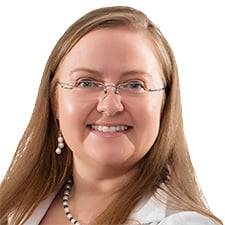Mentors are essential to a successful transition from residency to practice, and their influence can extend well into the future.
Brandi Ring, MD, is associate medical director of Center for Children & Women–Southwest. Throughout her career, she has played the role of both mentor and mentee. She offered a few insights on the value of mentor relationships for young physicians.
Seek them out
A good mentor may be harder to find during practice than they were during training, when mentor relationships are largely built into the curriculum.
“There is a need to be willing to approach people randomly and say: I’m looking for someone who has had this problem in the past,” said Dr. Ring, an ob-gyn who is speaker of the AMA Young Physicians Section Governing Council. “When you find the right person, ask if they are able to offer advice. That getting-permission part is really important. You have to give them an opportunity to say they don’t have the bandwidth.”
Learn with the AMA about three tips for taking the private physician practice route after residency.
Look for variety
Some mentors can help you with local questions, such as how you function in your health system, and some can give you bigger-picture advice. None can help you with every question you encounter.
“You don’t need to find a single mentor that is going to tell you about every aspect of your life,” Dr. Ring said. “You can find one that is going to focus on one single aspect, and those relationships don’t have to be forever. Understanding that was freeing for me.”
Match the mentor to the situation
If you have a number of mentors, matching the physician with the situation shouldn’t be a problem.
“When I was trying to decide if I was going to leave my first job, I reached out to some mentors who had transitioned form private practice to academic medicine and said: What are the things I need to know about this transition?” Dr. Ring said. “How can I make it easier on myself to do this?”
Do you know these five networking tips for job-seeking residents and fellows?
Don’t force it
When it comes to mentor relationships, a shared area of interest or a common problem may not be enough to make it work.
“You can ask more than one person for advice. If you talk to one person, hear what they have to say and think: That’s one way to do it, but not the way I would do it,” Dr. Ring said. “There’s nothing wrong with looking for someone else who might take a different approach that is more helpful to you.”
Read this Q&A with AMA member Elisa Choi, MD, to learn about mentoring women to challenge outdated leadership traditions.
Expand the definition
Too often in mentor relationships, there is the assumption that only age can bring wisdom. Dr. Ring said experience is a much more qualifying factor in selecting a mentor.
“Many of us have in our mind that these relationships are an older person mentoring a younger person, but everyone has problems that can be learned from a mentor of any age,” Dr. Ring said. “It may just be that they have gone through a similar situation. Maybe they have insight on the geography in which you work? That doesn’t have to be age-related.”




